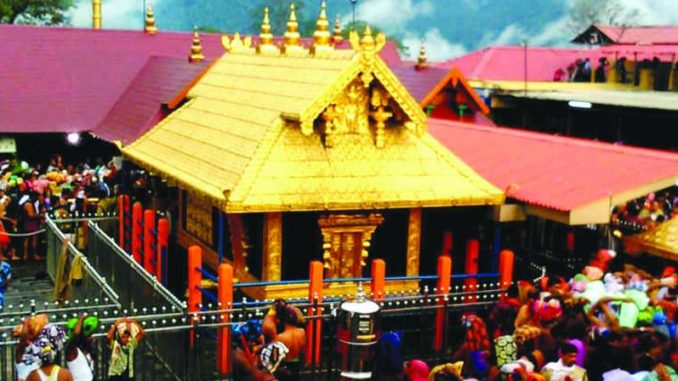
Saturday’s verdict is the latest in a recent series of landmark Supreme Court decisions, including the decriminalisation of gay sex and adultery.
he Supreme Court on Friday removed a ban that prevented women between 10 and 50 years of age from entering Kerala’s Sabarimala temple — the latest in a recent series of landmark decisions, including the decriminalisation of gay sex and adultery.
The Sabarimala shrine, located northeast of Pathanamthitta in a tiger reserve, is dedicated to the Hindu deity Ayyappan. Devotees consider Ayyappan to be an eternal celibate.
Chandrachud said religion can’t be used as a cover to deny women the right to worship, and that to treat women as the children of a lesser God was to blink at the Constitution.
Union Women and Child Development Minister Maneka Gandhi said the “wonderful” judgment “opens up the way forward for Hinduism to become even more inclusive and not a property of one caste or one sex.”
Kandararu Rajeevaru, the head priest at Sabarimala, said the verdict was “disappointing” — — but that the ‘Tantri [head priest] family’ would accept it.
The Congress, currently an Opposition party in Kerala, said it welcomed the verdict.
JUSTICE INDU MALHOTRA DISSENTS
Justice Indu Malhotra, the lone woman on the bench, said it wasn’t for courts to determine which religious practices should be struck down — except in issues of social evil, like Sati.
Issues which have a deep religious connotation, she said, shouldn’t be tinkered with to maintain a secular atmosphere in the country.
HISTORIC DECISIONS
In recent weeks, the Supreme Court has delivered a series of historic judgments. It partially struck down one colonial-era law and scrapped another to decriminalise sex between consenting adults of the same sex and adultery.
In another verdict, it said Aadhaar — a biometric database on more than 122 crore Indians — was valid, but imposed curbs.
Source: India Today

Leave a Reply